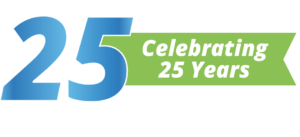Translation in the public sector is essential for ensuring that all community members, regardless of their language, have equal access to governmental services and information. This article examines how translation bridges linguistic divides, supports inclusivity, and enhances the accessibility of public services in a multicultural society.
The Imperative for Translation Services in Public Administration
Language barriers can significantly impede access to essential public services, leading to healthcare, education, legal aid, and more disparities. Translation is not merely a convenience but a necessity to ensure that all community members, regardless of their language proficiency, have equal access to information and services. By employing professional translation services, public sector entities can enhance their engagement with the community, promote transparency, and uphold the rights of non-English speakers.
Key Tools and Methods for Effective Public Sector Translation
To address the linguistic diversity in the community, the public sector employs various tools and methods for translation and interpretation:
1. Professional Translation Agencies: Specialized agencies offer comprehensive translation and interpretation services tailored to the public sector’s unique needs, ensuring accuracy and cultural sensitivity.
2. Translation Software: Technological advancements have made translation software an invaluable tool for quick and cost-effective translations of routine documents. However, human oversight remains crucial for nuanced texts.
3. Community Interpreters: In settings requiring interpersonal communication, such as healthcare and legal services, trained community interpreters are indispensable in facilitating understanding and participation.
Challenges and Solutions in Public Sector Translation
While integrating translation services in the public sector is beneficial, it has challenges. Budget constraints, the need for specialized knowledge, and the demand for timely translations are significant hurdles. However, strategic partnerships with professional translation agencies, investment in training for public employees, and leveraging technology can mitigate these challenges, enabling efficient and effective translation services.
The Way Forward: Embracing Multilingualism in Public Services
Our approach to public sector translation must adapt as communities change. Investing in quality translation services goes beyond breaking language barriers; it ensures every voice is heard and respected in our democracy. This commitment reinforces the principles of equality and participation, making government services accessible to all. By doing so, we not only adhere to the ideals of inclusivity but also strengthen the very foundation of our democratic systems.
Deeper Exploration of Challenges in Public Sector Translation
Exploring the challenges of public sector translation reveals several nuanced issues:
Linguistic Diversity and Rare Languages: Public entities often serve populations speaking a wide array of languages, including less commonly spoken ones. Finding qualified translators for rare languages can be difficult, leading to gaps in service provision.
Technical Terminology and Specializations: Government documents and services often involve complex, specialized language specific to legal, medical, and technical fields. Translators must possess linguistic skills and domain-specific knowledge to ensure accuracy and clarity.
Cultural Nuances and Localization: Effective translation goes beyond words, requiring understanding cultural contexts and nuances. This includes idiomatic expressions, cultural references, and localized content, which can be challenging to convey accurately across languages.
Potential Solutions to Overcome Translation Challenges
To address these challenges, the public sector can employ several strategies:
Developing a Multilingual Workforce: Encouraging language learning and multilingualism within public sector organizations can help naturally bridge language gaps and foster a more inclusive environment.
Leveraging Community Resources: Engaging with community organizations and utilizing the linguistic skills of community members can be an effective way to address the need for rare language translations and cultural nuances.
Continuous Professional Development: Offering ongoing training for translators and interpreters in both linguistic skills and specialized knowledge areas can enhance the quality of translation services.
Addressing Ethical Considerations in Public Sector Translation
Ethical considerations in translation are paramount to maintaining trust and ensuring equitable service delivery:
Accuracy and Integrity: Translators must strive for the highest levels of accuracy, avoiding any alterations that could mislead or result in misunderstandings. The integrity of the original message must be preserved to ensure that all individuals receive correct and comprehensive information.
Cultural Sensitivity and Bias: Translators must be culturally aware, ensuring that translations are free from bias and respectful of cultural differences. This includes understanding the cultural context of both the source and target languages to avoid perpetuating stereotypes or cultural insensitivity.
Confidentiality and Privacy: Confidentiality is crucial in many public sector contexts, especially in legal and healthcare settings. Translators must adhere to strict ethical standards to protect individuals’ privacy and sensitive information.
By tackling these challenges and adhering to ethical standards, public sector translation services can enhance their effectiveness and ensure they serve the community’s needs respectfully, accurately, and inclusively.
In Conclusion
In the public sector, translation services are crucial for creating an inclusive and accessible administration. At Atlas Language Services, we specialize in providing professional translation services that help public entities embrace linguistic diversity. This approach enhances community engagement, ensures equal access to services, and plays a key role in building a fairer society. Our journey towards inclusive governance emphasizes overcoming language barriers with effective translation and interpretation strategies.
FAQs
Why is translation important in the public sector?
Translation bridges language gaps in public services, ensuring all community members have equitable access to information and services, regardless of their language proficiency.
What are some key tools for public sector translation?
Professional translation agencies, translation software, and community interpreters are essential for providing accurate and culturally sensitive translations in the public sector.
What challenges do public sector translation services face?
Budget constraints, the need for specialized knowledge, and the demand for timely translations are significant challenges in providing effective translation services.
How can the public sector overcome translation challenges?
Strategic partnerships, investing in employee training, and leveraging technology can enhance the efficiency and effectiveness of translation services in the public sector.


